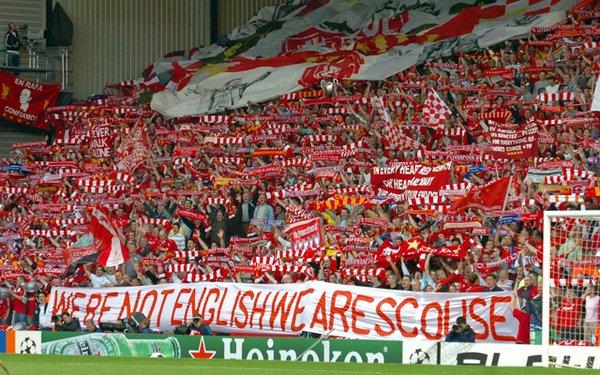 With the influx of foreign ownership in the Premier League I have been waiting for one of them to challenge the deal that Premier League TV rights are divided equally amongst the clubs. So I cannot say that I am surprised to read that Liverpool have announced they will lead a challenge for overseas TV rights to be sold on a club-by-club basis.
With the influx of foreign ownership in the Premier League I have been waiting for one of them to challenge the deal that Premier League TV rights are divided equally amongst the clubs. So I cannot say that I am surprised to read that Liverpool have announced they will lead a challenge for overseas TV rights to be sold on a club-by-club basis.
Liverpool’s managing director, Ian Ayre, has insisted the break-up of the established broadcasting deal, worth £3.2bn in total to all Premier League clubs for 2010?13, is “a debate that has to happen”, with the Anfield club in favour of the Spanish model that allows Barcelona and Real Madrid to negotiate individual contracts that dwarf their domestic and European rivals.
At present, the Premier League sells domestic and overseas broadcasting rights collectively and more than doubled international revenue in its last negotiations, from £625m for 2007?10 to £1.4bn for 2010?13. With the Premier League shown in 212 countries and having 98 broadcast partners around the world, it is expected the next deal will show a similar increase, with overseas rights potentially worth more than domestic for the first time.
Ayre believes the Premier League’s four biggest global draws, Liverpool, Manchester United, Chelsea and Arsenal, deserve an increased share from 2013, with overseas broadcasting having a greater influence on the Anfield club’s financial future than a new stadium.
“Personally I think the game-changer is going out and recognising our brand globally,” said the Liverpool managing director. “Maybe the path will be individual TV rights like they do in Spain. There are so many things moving in that particular area. What is absolutely certain is that, with the greatest of respect to our colleagues in the Premier League, but if you’re a Bolton fan in Bolton, then you subscribe to Sky because you want to watch Bolton. Everyone gets that. Likewise, if you’re a Liverpool fan from Liverpool, you subscribe. But if you’re in Kuala Lumpur there isn’t anyone subscribing to Astro, or ESPN to watch Bolton, or if they are it’s a very small number. Whereas the large majority are subscribing because they want to watch Liverpool, Manchester United, Chelsea or Arsenal. So is it right that the international rights are shared equally between all the clubs? Some people will say: ‘Well you’ve got to all be in it to make it happen.’ But isn’t it really about where the revenue is coming from, which is the broadcaster, and isn’t it really about who people want to watch on that channel? We know it is us. And others. At some point we definitely feel there has to be some rebalance on that, because what we are actually doing is disadvantaging ourselves against other big European clubs.”
It would require 14 of the Premier League’s 20 members to vote in favour of a new commercial arrangement. While the La Liga’s system has attracted widespread criticism, and plunged many of the Spanish clubs into financial difficulty, Ayre believes the status quo jeopardises the financial might of the Premier League.
“If Real Madrid or Barcelona or other big European clubs have the opportunity to truly realise their international media value potential, where does that leave Liverpool and Manchester United? We’ll just share ours because we’ll all be nice to each other? The whole phenomenon of the Premier League could be threatened. If they just get bigger and bigger and they generate more and more, then all the players will start drifting that way and will the Premier League bubble burst because we are sticking to this equal-sharing model? It’s a real debate that has to happen.”
Ironically it was the launch of Sky and the Premier League that ended the previous TV contract in which the Big Five; Liverpool, Arsenal, Spurs, Man United and Everton, received the lion share of the TV rights.
What do you think of Ayre’s comments? Should the individual teams in the Premier League be able to negotiate their own overseas TV rights?


